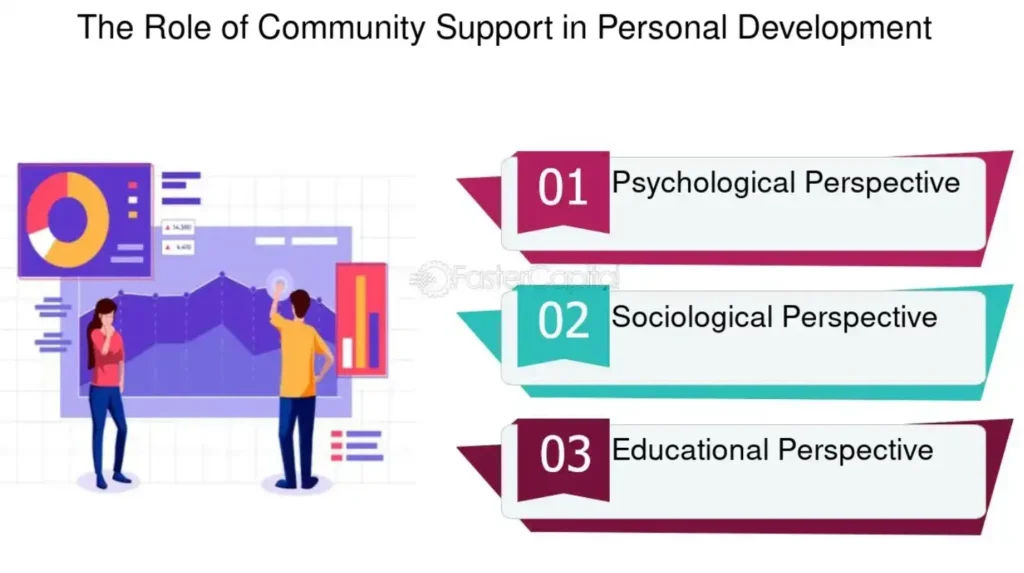
Why Community Support Systems Are Vital for Urban Success
SMM ALIPAYUS Jan 3, 2025 News
Urban areas are dynamic, bustling environments, often seen as the heartbeat of modern society. These spaces are rich with diversity, culture, and opportunity. However, they also face unique challenges, such as overcrowding, inequality, and environmental pressures. To navigate these complexities and ensure the long-term success of cities, robust community support systems are essential. These systems, encompassing everything from healthcare and education to local initiatives and social services, play a pivotal role in shaping urban life.
Strengthening Social Ties and Building Resilience
At the core of any successful city lies its community. Urban living can be isolating, even in densely populated environments. People often find themselves disconnected from their neighbours and the broader society. Community support systems act as a remedy to this disconnection, creating opportunities for individuals to interact, collaborate, and build meaningful relationships.
communityWhether through local festivals, neighbourhood improvement projects, or even community gardens, these initiatives foster a sense of belonging. People who feel connected to their community are more likely to contribute to its success, supporting each other during challenges and celebrating shared achievements. Moreover, these social networks become critical during crises, such as natural disasters or economic downturns, providing a safety net that strengthens urban resilience.
Enhancing Public Health and Wellbeing
Healthcare is a fundamental pillar of urban success. Access to reliable, quality healthcare services ensures that residents can lead healthier, more productive lives. Public health initiatives, local clinics, and specialized care services all contribute to this goal.
For example, services like Direct Dental dental care provide essential oral health support, which directly impacts overall wellbeing. Poor dental health can lead to serious issues, from infections to chronic illnesses. By offering accessible care, such providers ensure that communities not only address immediate needs but also take preventative measures to maintain long-term health. Comprehensive healthcare services empower residents to stay active, engaged, and ready to seize opportunities in their urban environments.
Direct Dental dental careSupporting Economic Stability and Growth
Urban areas thrive on economic activity, but this prosperity often depends on the strength of their community support systems. These systems provide critical assistance to individuals and businesses, enabling economic growth and stability.
Job training programs, employment services, and small business initiatives equip residents with the skills and resources they need to succeed. Such programs also create a pathway for people who may have faced barriers to employment, such as recent immigrants, single parents, or those re-entering the workforce after a hiatus.
Additionally, community support systems can act as a safety net during times of economic instability. By offering financial aid, housing support, and food assistance, they ensure that residents can weather short-term hardships without falling into long-term poverty. When individuals and families are supported, they are better able to contribute to the local economy, creating a cycle of growth and opportunity.
Promoting Education and Lifelong Learning
Education is one of the most transformative tools for urban success. Community-based educational programs, libraries, and after-school initiatives are integral to equipping residents with knowledge and skills.
Children and young people benefit immensely from access to quality education, which paves the way for better job opportunities and social mobility. Adult education programs, on the other hand, empower residents to continue learning throughout their lives, adapting to changing job markets, and exploring new interests. These initiatives not only improve individual lives but also create a more skilled and competitive workforce, driving economic prosperity for the city as a whole.
Encouraging Sustainable Growth and Environmental Responsibility
Cities face growing environmental challenges, from pollution to resource scarcity. Community support systems can drive sustainable practices, engaging residents in initiatives that improve urban living conditions while addressing global concerns.
Local recycling programs, urban gardening projects, and renewable energy schemes inspire individuals to take part in environmental efforts. When people feel connected to these movements, they are more likely to adopt eco-friendly behaviours, from reducing waste to supporting clean energy. Sustainable practices not only benefit the environment but also enhance the quality of life for urban residents, creating cleaner, greener spaces.
Cultivating a Shared Vision for the Future
The most successful cities are those where residents, businesses, and policymakers work together towards a shared vision. Community support systems play a crucial role in uniting diverse groups around common goals, whether improving public infrastructure, enhancing education, or tackling social inequality.
These systems provide a platform for dialogue and collaboration, ensuring that all voices are heard and valued. By fostering inclusive decision-making processes, they create cities that are not only more equitable but also more innovative. When everyone has a stake in the success of their community, urban areas become vibrant, thriving spaces where people of all backgrounds can flourish.
Conclusion
Community support systems are not just a nice-to-have feature of urban life; they are a necessity. They strengthen social connections, promote public health, drive economic growth, support education, and encourage sustainability. These systems are the threads that weave a diverse population into a cohesive, resilient community.
Investing in these networks ensures that cities remain places of opportunity, innovation, and inclusivity. As urban areas continue to grow and evolve, fostering strong community support systems will be essential in creating environments where every resident can thrive.


